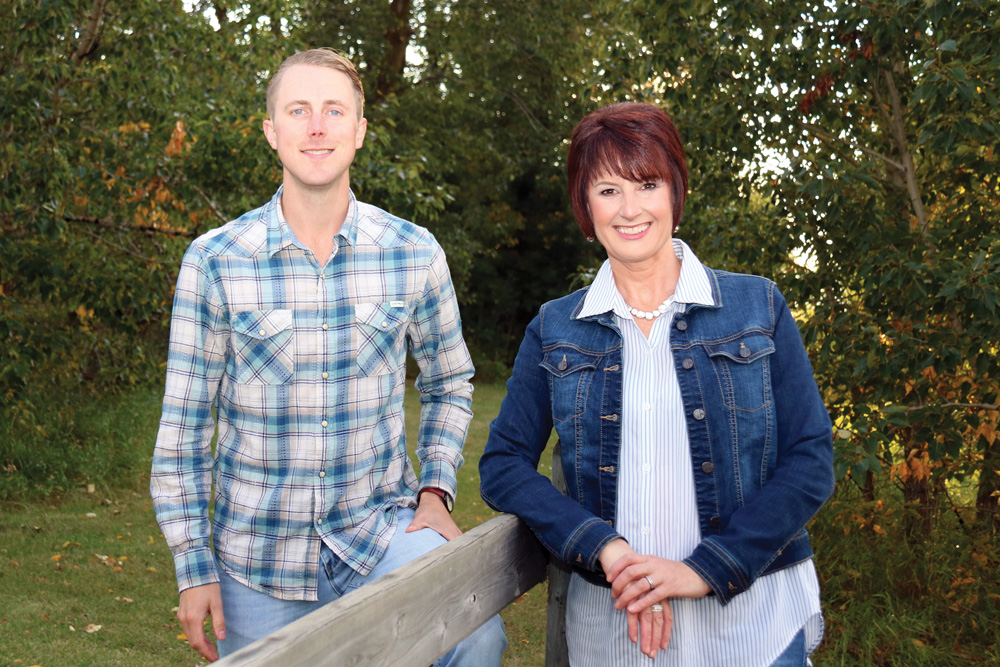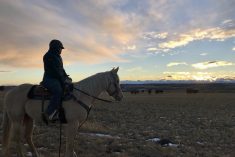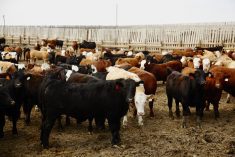Business deals and family relationships are like oil and water. Under most conditions they don’t mix very well, and age-old wisdom is to keep them separate.
Usually this is good advice, not because family members are poor risks as business partners, but because of additional challenges involved in complex relationships. But family farms don’t have the option of following this advice. They need a good business arrangement and smart estate planning. The tough part is how to do it.
Graham Graff is a fourth-generation farmer in central Alberta. A few years ago he and Karin Naslund (a family friend) co-founded a consulting business — Legacy Family Business Advisors. Graff and Naslund also both manage family farm operations.
Read Also

Growing Canada’s beef herd: CCA’s priorities working with new federal government
This is my first column since the federal election. The Canadian Cattle Association works with all elected officials and parliamentarians, regardless…
“I farm with my parents and older brother, and my brother and I are in a transitional period of taking over the farm from our parents over the next few years,” says Graff.
“He and I both went to business school but were interested in coming back to the farm — and working together as a family operation. I started Legacy Family Business Advisors with Karin, a friend of my parents. We were both interested in mediation and family business issues. We had our mediation designations and decided to work together to help farming families with conflict resolution and transition planning,” he says.
His interest in this field came from his farming background, business education (he holds an MBA from the University of Alberta), and training in mediation. Legacy Family Business Advisors focuses primarily on transition planning but also on conflict resolution for not only farming families but also family businesses of any kind. There is often a need for third-party intervention to help people get through various challenges.
Naslund, a chartered mediator, raises beef cattle and grows grain with her husband. She also has another consulting practice on the side. Being farmers themselves gives them insight and experience, enabling them to connect with other farmers and to know firsthand of some of the problems that they face.
“We’d both seen farms that had broken up due to conflict — family members no longer speaking to each other and unable to resolve their differences. Then the farm gets split up, or someone is no longer farming with their parents or siblings,” Graff says.
Start transition planning early
One of the biggest challenges is transition planning — passing the farm or ranch to the next generation.
“It’s usually a long and difficult process, and every situation is different. No farms are exactly the same in type of operation, number of farming children and non-farming children, etc.… Some of them may be working on-farm and some off-farm.”
Children who have invested their lives and labours in the farm often feel they are entitled to more of the inheritance because they have more sweat equity than the siblings who left the farm to do something else.
“How much that sweat equity is worth can vary from family to family. There’s a saying that fair is not always equal. Sweat equity does need to be rewarded/compensated, but how do you come up with that value? In my own farm situation, I have two younger siblings who are still in school but not going to be part of the management of the farm. There is a big piece in our transition plan regarding this situation,” says Graff.
Often it takes a mediator to help people get on the same page. This can be a good step for families, rather than not communicating and/or breaking up the relationship or suing someone, which results in traumatic, harmful and costly situations.
“Don’t delay planning; it’s never too early to start a transition plan. It can be tweaked along the way or added to, but you need to start. As my brother and I take over the farm operation here, we are already setting up things for when we might be passing it on to the next generation. Often people leave this discussion until too late; it’s important to start these conversations before there’s a traumatic event such as a death, or someone gets sick or injured,” he says.
“These things are much harder to deal with when you are in crisis mode. If you can plan for all of this beforehand, it can be much better, save the family from conflicts and turmoil, or prevent a lawsuit.”
Bridging generations
Generational differences are another big issue, says Graff. “When parents and children are working together it can often be a struggle to make that work. They often have different goals or thoughts on how things should be done.”
In some situations the older generation may be reluctant to let go, or to let the younger generation take over management decisions. Graff says they often see this situation. It takes time and patience for the older generation to share their experience, while the younger generation often has new ideas that might work well if the older generation gives them a chance.
“There’s a lot of give-and-take required.”
The work-life balance on a farm is also crucial, and can be an issue between the generations.
“The younger generation generally works hard but sees things differently than their parents did when they were growing up,” he says. The older generation may have struggled to succeed, often so focused on their work that they didn’t take time for anything else, and may expect the younger generation to do the same.
“I think the younger generation is often trying to find a work-life balance or do some work off the farm, like I am doing with my Legacy business — as a side business or a passion project. It’s tough to find time for it, but important to find a balance of on-farm and off-farm and this can be a point of conflict within families.”
Some families depend on outside income and this may mean that some of the farm work gets behind, doesn’t get done at optimum times or is neglected, and this can be a point of contention. It’s difficult to do everything that needs to be done.
Thus communication is important, taking time to discuss these things, or have family meetings to try to have everyone on the same page.
“Lack of communication is generally the biggest problem. There may be long-term differences and disputes that have never been settled, due to lack of communication on a daily basis,” says Graff.
Sometimes people assume that the other person knows what’s needed, but usually we can’t assume; we need to actually talk about things. There are often too many assumptions and misunderstandings when there’s lack of communication.
“There may be something someone did or said that is misunderstood, or one person assumes that the other person should know how to do something or that a certain thing needed to be done, and this can also be a source of conflict.”
There’s no substitute for actually talking and making sure you really are on the same page.
“Otherwise you might assume someone is angry or careless when actually they are just busy; they are not ignoring you or mad, but you don’t know unless you talk to them. Or they might be having a rough day in another part of their life or relationship,” says Graff.
Schedule meetings
“The farm is a busy place; it’s tough to make time to communicate. Scheduled meetings help. Our family has created a new process, with scheduled meetings. At the end of one meeting we schedule the next. When you meet may depend on the season, whether you are calving or busy harvesting.”
Graff says they try to have their main meetings, which take an hour or two to discuss everything and include an agenda, when they’re not as busy. They can schedule quick meetings at other times. It often pays to take a few minutes even during busy times, so everyone is on the same page and knows what each person is expected to do during those hectic times.
“Even 10 minutes in the morning before the day’s work begins can be helpful. On our farm, my brother and I work closely with our parents. We brainstorm in the morning about the best way to do what needs to be done, and throw out ideas that help us create the best plan of attack,” he says.
Knowing you will have a meeting can give each person the opportunity as well as the incentive to bring an idea to the table, or to mention something that’s on their mind. Otherwise some issues may sit and simmer. If people don’t communicate on a regular basis, relationships can deteriorate. Scheduling a meeting is an important first step, and almost as important as having it.
“If you know there will be a meeting, it gives you time to think about what you want to say. If it’s suddenly sprung on you, when you are focused on something else and needing to go prep the combine or grease the tractor or check the cows, you may react more adversely than if you’d had time to think about it. If you’re not prepared for discussion and not wanting to do it at that time, you are not in a good mood to have that meeting so it’s not going to go well,” he explains.
Be hard on the problem
There are ways to address and discuss things without destroying relationships or putting the family operation at risk.
“One thing I learned in my mediation training is that we should focus on, and be hard on, the problem at hand and not the people.”
Try to get to the root of the issue or problem before accusing the person. There is generally an underlying issue, he says, and you likely shouldn’t take out your anger on that person.
“On our farm we came up with a rule about this,” says Graff.
Every farm has equipment breakdowns, especially in busy seasons.
“We were quick to blame the person driving that piece of machinery, saying what they did wrong, when we really should have been looking at the problem. Was it a tough season and tough to swath or combine or hay?”
There can be circumstances beyond the control of the person driving the machine.
“Take time to envision yourself in that piece of machinery; what if you had this issue? We need to look for what the problem might have been with that piece of equipment before we blame the operator,” says Graff. Look at this as a learning lesson rather than condemning the person who experienced the problem.
Sometimes the younger generation learns best by trial and error. Even if they’ve been told something, they may learn it more readily if they experience what can go wrong and realize how they could have done it differently. Experience is often the best teacher; you may not fully understand what Dad or Grandpa told you until you come up against that situation yourself.
“It takes training — from the older generation to the younger family members,” he says. The older generation has accumulated a lot of valuable experience and wisdom, but patience is also important.
On the flip side, the younger generation sometimes understands more about new equipment and technologies, Graff says.
“Almost every piece of equipment today has a computer screen. The younger generation also needs to be patient when trying to teach the older members to learn new technology. It’s always a two-way street.”
There are graceful ways to handle differing views constructively.
“One thing that can be helpful is to take personality tests and share those with one another,” says Graff.
One option is the Myers-Briggs personality test, a self-report questionnaire indicating differing psychological preferences in how people perceive the world and make decisions. There’s also a quicker one called the True Colors personality test.
“If you know your family members’ personalities, this can help you deal with those differing views,” Graff says.
Another important tip in family relationships is to try not to let conflict fester. It’s best to get these things out in the open and resolved as soon as possible; otherwise they become a huge stumbling block.
“There is a time period, however, when people need to step back for a moment and think about it. If tempers flare, they need to walk away and take time to calm down and collect their thoughts. However, once they’ve processed the situation and had time to think about the real issue, they should deal with that conflict. Don’t let it sit there for too long under the surface because then it will boil over at some point and is usually worse later on,” says Graff.
“It may burst out at a very inappropriate time, like in a busy season when you are processing cattle or calving, or in the middle of seeding or harvest — trying to get things done before it rains. When something goes wrong or there’s a breakdown this is when we might see conflict boil over,” he says.
Sometimes it is beneficial to hire outside help to assist in resolving differences or creating an acceptable transition plan.
“Trusted advisors such as your family accountant or lawyer can help, but they don’t always have time to help with conflicts or start the transition plan. That’s where hiring a facilitator or someone within the CAFA (Canadian Association of Farm Advisors) organization can be beneficial — a neutral third party who can assist. There’s a wide variety of expertise and professionals in that organization, depending on what you are looking for. There are life insurance providers, mediators and people who focus on transition planning. This can be a great resource,” says Graff.
















